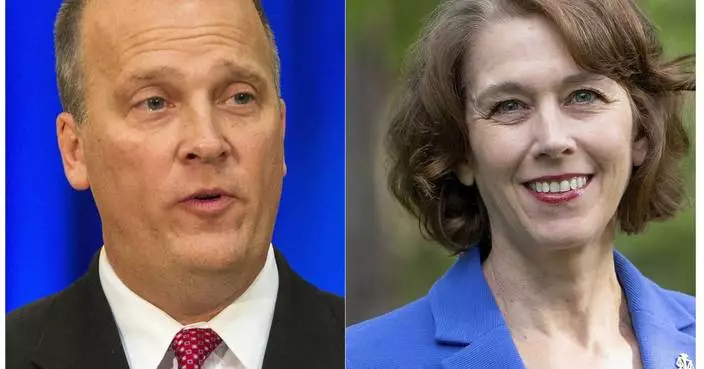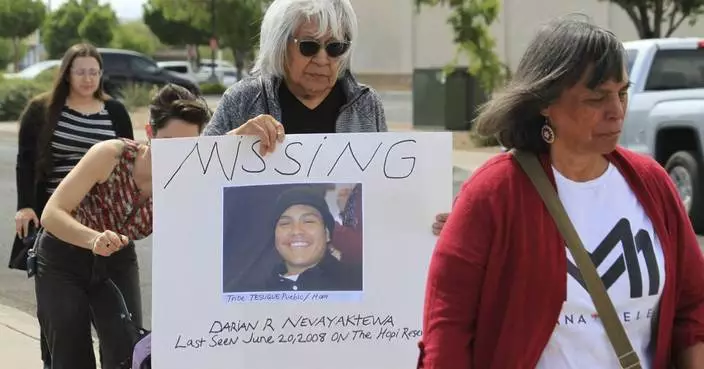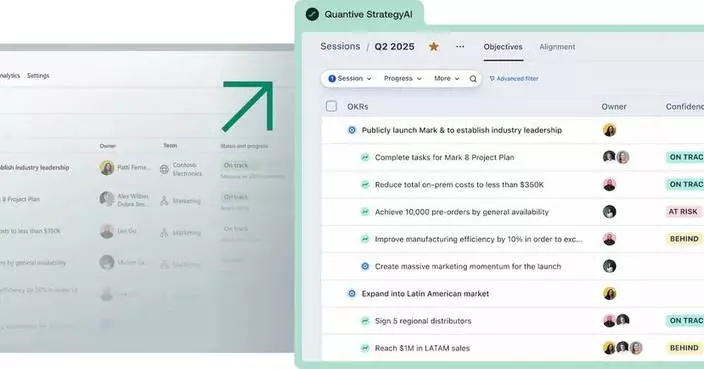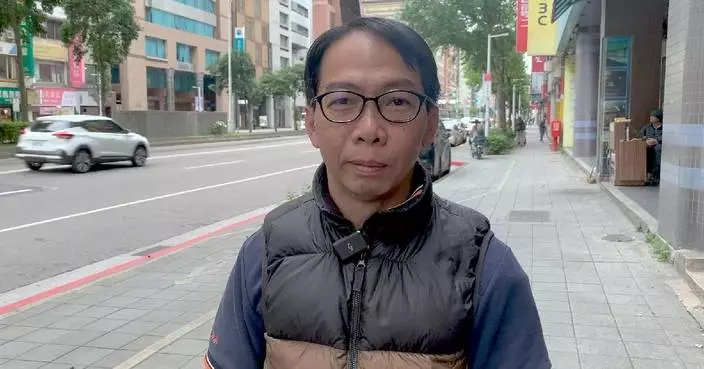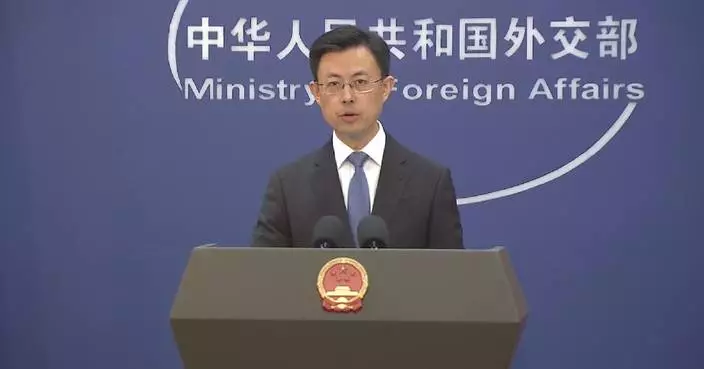TORONTO (AP) — The Toronto Blue Jays put right-hander Max Scherzer on the 15-day injured list Sunday because of inflammation in his right thumb.
The move comes one day after the three-time Cy Young Award winner left his debut start with Toronto after three innings because of right lat soreness.
Manager John Schneider said Scherzer will visit a hand specialist in the U.S. on Monday.
“Hopefully this kind of resets him and knocks it out,” Schneider said of the persistent thumb issue. “We obviously need him. Elite pitcher, and we want him to feel his best.”
Toronto recalled left-hander Easton Lucas and selected lefty Mason Fluharty, both from Triple-A Buffalo. Left-hander Richard Lovelady, who allowed four runs in relief of Scherzer and took the loss against Baltimore on Saturday, was designated for assignment.
Following Saturday’s 9-5 defeat, the 40-year-old Scherzer said his lat soreness was directly related to lingering thumb pain that forced him to push back a spring training start earlier this month.
Calling himself “frustrated,” Scherzer said solving the thumb issue is his top priority.
“This thumb is absolutely critical to your arm health,” he said after Saturday's game. “I’ve got to get this 100% before I pitch again.”
Scherzer signed a $15.5 million, one-year contract in February. He went 2-4 with a 3.95 ERA in nine starts for Texas last season, starting the year on the injured list while recovering from lower back surgery. He also had a stint on the IL with shoulder fatigue and didn’t pitch after Sept. 14 because of a left hamstring strain.
Scherzer allowed two runs and three hits Saturday, including two solo home runs. He threw 45 pitches, 28 for strikes. He struck out one and walked none.
AP MLB: https://apnews.com/hub/mlb

Toronto Blue Jays pitcher Max Scherzer (31) throws during the first inning of baseball game against the Baltimore Orioles Saturday, March 29, 2025, in Toronto. (Christopher Katsarov/The Canadian Press via AP)

Toronto Blue Jays pitcher Max Scherzer (31) throws during the first inning of baseball game against the Baltimore Orioles Saturday, March 29, 2025, in Toronto. (Christopher Katsarov/The Canadian Press via AP)

FILE - Toronto Blue Jays pitcher Max Scherzer throws a pitching session during spring training baseball in Dunedin, Fla., on Monday, Feb. 17, 2025. (Nathan Denette/The Canadian Press via AP, File)
MADISON, Wis. (AP) — Wisconsin voters decided Tuesday to enshrine the state's voter ID law in the state constitution.
The state was also electing its top education official, who will guide policies affecting K-12 schools during President Donald Trump’s second term, will be elected Tuesday in a race between the teachers union-backed incumbent and a Republican-supported critic.
Both contests had sharp partisan divisions, though they have drawn far less spending and national attention than the race for control of the Wisconsin Supreme Court. Polls closed at 8 p.m. CDT.
Here’s a look at the two contests:
Wisconsin’s photo ID requirement for voting will be elevated from state law to constitutional amendment under a proposal approved by voters.
The Republican-controlled Legislature placed the measure on the ballot and pitched it as a way to bolster election security and protect the law from being overturned in court.
President Donald Trump trumpeted the measure's approval on his social media platform, Truth Social, calling it “maybe the biggest win of the night.”
“It should allow us to win Wisconsin, like I just did in the presidential election, for many years to come!" he said.
Trump narrowly lost Wisconsin to Joe Biden in 2020 but defeated Kamala Harris last November election to claim its 10 electoral votes.
Elon Musk, the world’s richest man, who is leading Trump’s efforts to shrink the federal government, also noted the outcome on his social media platform, X, saying: “Yeah!”
Democratic opponents argued that photo ID requirements are often enforced unfairly, making voting more difficult for people of color, disabled people and poor people.
All Voting is Local, a nonpartisan voting rights organization, warned that placing the photo ID mandate in the constitution will make it harder to vote.
“We should not be purposefully leaving eligible voters behind by setting up additional barriers to the ballot, but unfortunately, those in the Badger State have one more step to take before voting,” Sam Liebert, the organization's state director, said in a statement.
Wisconsin voters won't notice any changes when they go to the polls. They will still have to present a valid photo ID just as they have under the state law, which was passed in 2011 and went into effect permanently in 2016 after a series of unsuccessful lawsuits.
Placing the photo ID requirement in the constitution makes it more difficult for a future Legislature controlled by Democrats to change the law. Any constitutional amendment must be approved in two consecutive legislative sessions and by a statewide popular vote.
Wisconsin is one of nine states where people must present photo ID to vote, and its requirement is the nation’s strictest, according to the National Conference of State Legislatures. Thirty-six states have laws requiring or requesting that voters show some sort of identification, according to the NCSL.
The race to lead the state Department of Public Instruction pits incumbent Jill Underly, who is backed by Democrats and the teachers union, against consultant Brittany Kinser, a supporter of the private school voucher program who is endorsed by Republicans but calls herself a moderate.
Wisconsin is the only state where voters elect the top education official but there is no state board of education. That gives the superintendent broad authority to oversee education policy, from dispersing school funding to managing teacher licensing.
The winner will take office at a time when test scores are still recovering from the pandemic, the achievement gap between white and Black students remains the worst in the country and more schools are asking voters to raise property taxes to pay for operations.
Underly’s education career began in 1999 as a high school social studies teacher in Indiana. She moved to Wisconsin in 2005 and worked for five years at the state education department. She also was principal of Pecatonica Elementary School for a year before becoming district administrator.
Underly, 47, was elected state superintendent in 2021 and was endorsed by the union, the Wisconsin Education Association Council, as well as the Wisconsin Democratic Party and numerous Democratic officeholders.
Kinser, whose backers include the Wisconsin Republican Party and former Republican Govs. Tommy Thompson and Scott Walker, is vying to become the first GOP-affiliated person to hold the superintendent position in more than 30 years.
She worked for almost 10 years as a special education teacher and instructional coach in Chicago Public Schools. After that she spent 15 years at public charter schools in Chicago, California and Milwaukee.
In the Milwaukee area, Kinser worked for Rocketship schools, part of a national network of public charter institutions, and became its executive director for the region.
In 2022 she left Rocketship for City Forward Collective, a Milwaukee nonprofit that advocates for charter and voucher schools. She also founded a consulting firm where she currently works.
Kinser, 47, tried to brand Underly as being a poor manager of the Department of Public Instruction and keyed in on her overhaul of state achievement standards last year.
Underly said that was done to better reflect what students are learning now, but the change was met with bipartisan opposition including from Democratic Gov. Tony Evers, who was previously state superintendent himself. Evers has not made an endorsement in the race.
Kinser said the new standards lowered the bar for students and made it more difficult to evaluate how schools and districts are performing over time.
Underly portrayed Kinser as nothing more than a lobbyist who doesn’t care about public education. Kinser supports the state’s private school voucher and charter school program, which Democrats and Underly oppose on the grounds that such programs siphon needed money away from public schools.
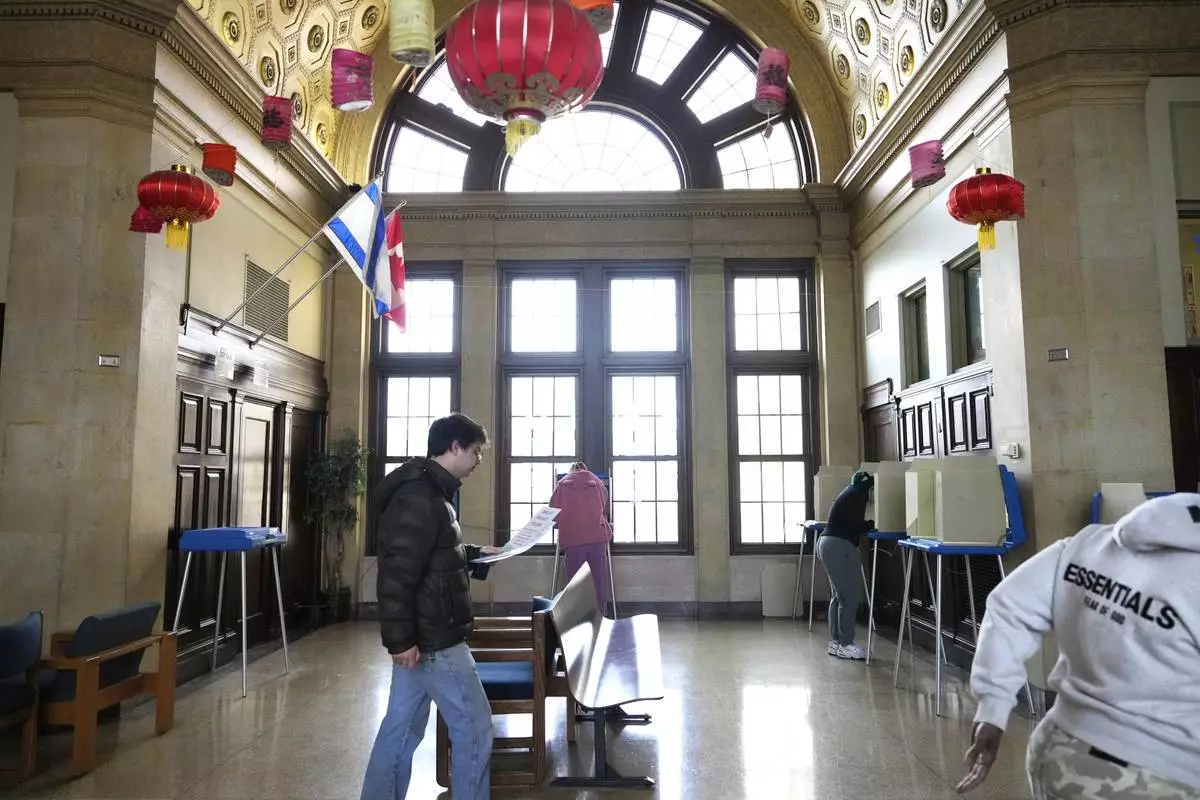
Maximillian Marquez, left, walks to a voting booth at the Milwaukee Academy of Chinese Language to cast a ballot in the state's Supreme Court election, Tuesday, April 1, 2025, in Milwaukee. (AP Photo/Kayla Wolf)
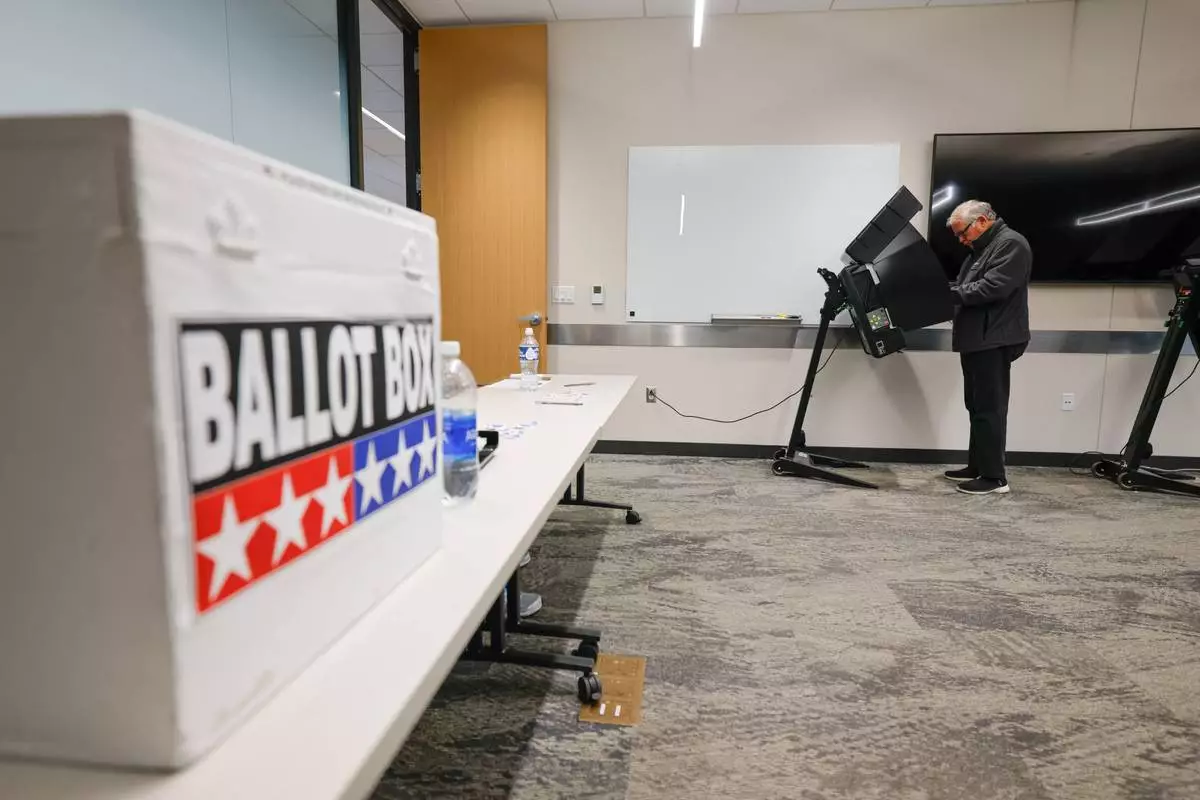
A voter casts a ballot during early voting in Waukesha, Wis., Tuesday, March 18, 2025. (AP Photo/Jeffrey Phelps)








